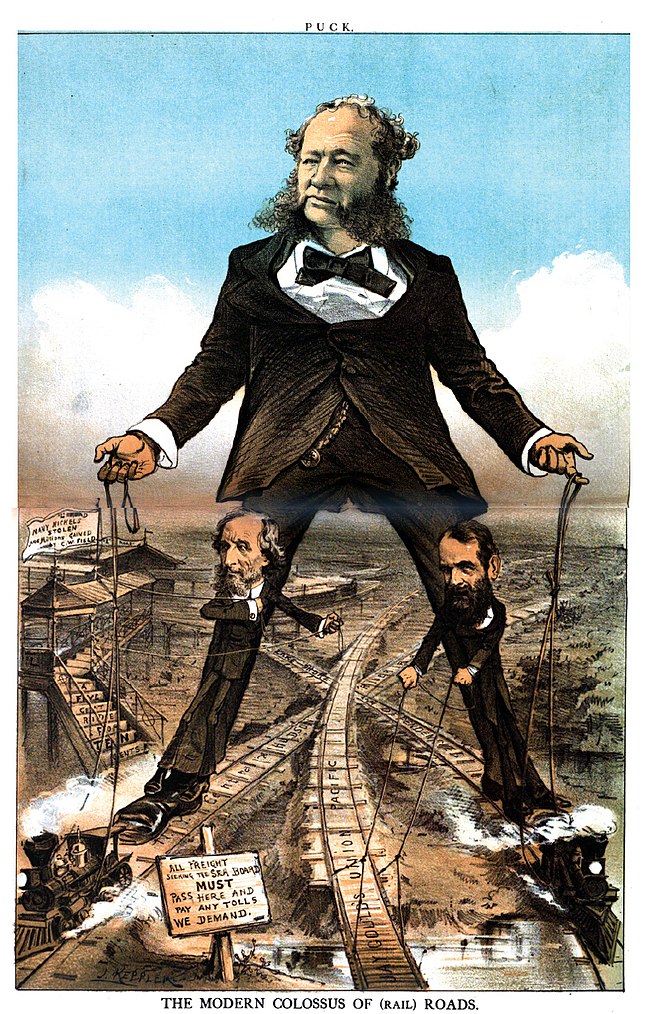
Main Difference
The main difference between Monopoly and Oligopoly is that the Monopoly is a market structure with a single firm dominating the market and Oligopoly is a market form in which a market or industry is dominated by a small number of sellers
-
Monopoly
A monopoly (from Greek μόνος, mónos, ‘single, alone’ and πωλεῖν, pōleîn, ‘to sell’) exists when a specific person or enterprise is the only supplier of a particular commodity. This contrasts with a monopsony which relates to a single entity’s control of a market to purchase a good or service, and with oligopoly which consists of a few sellers dominating a market. Monopolies are thus characterized by a lack of economic competition to produce the good or service, a lack of viable substitute goods, and the possibility of a high monopoly price well above the seller’s marginal cost that leads to a high monopoly profit. The verb monopolise or monopolize refers to the process by which a company gains the ability to raise prices or exclude competitors. In economics, a monopoly is a single seller. In law, a monopoly is a business entity that has significant market power, that is, the power to charge overly high prices. Although monopolies may be big businesses, size is not a characteristic of a monopoly. A small business may still have the power to raise prices in a small industry (or market).
A monopoly is distinguished from a monopsony, in which there is only one buyer of a product or service; a monopoly may also have monopsony control of a sector of a market. Likewise, a monopoly should be distinguished from a cartel (a form of oligopoly), in which several providers act together to coordinate services, prices or sale of goods. Monopolies, monopsonies and oligopolies are all situations in which one or a few entities have market power and therefore interact with their customers (monopoly or oligopoly), or suppliers (monopsony) in ways that distort the market.Monopolies can be established by a government, form naturally, or form by integration. In many jurisdictions, competition laws restrict monopolies due to government concerns over potential adverse effects. Holding a dominant position or a monopoly in a market is often not illegal in itself, however certain categories of behavior can be considered abusive and therefore incur legal sanctions when business is dominant. A government-granted monopoly or legal monopoly, by contrast, is sanctioned by the state, often to provide an incentive to invest in a risky venture or enrich a domestic interest group. Patents, copyrights, and trademarks are sometimes used as examples of government-granted monopolies. The government may also reserve the venture for itself, thus forming a government monopoly, for example with a state-owned company.Monopolies may be naturally occurring due to limited competition because the industry is resource intensive and requires substantial costs to operate (e.g., certain railroad systems).
-
Oligopoly
An oligopoly (ολιγοπώλιο) (Greek: ὀλίγοι πωλητές “few sellers”) is a market form wherein a market or industry is dominated by a small group of large sellers (oligopolists). Oligopolies can result from various forms of collusion that reduce market competition which then typically leads to higher prices for consumers. Oligopolies have their own market structure.With few sellers, each oligopolist is likely to be aware of the actions of the others. According to game theory, the decisions of one firm therefore influence and are influenced by decisions of other firms. Strategic planning by oligopolists needs to take into account the likely responses of the other market participants. Entry barriers include high investment requirements, strong consumer loyalty for existing brands and economies of scale. In developed economies oligopolies dominate the economy as the perfectly competitive model is of negligible importance for consumers. Oligopolies differ from price takers in that they do not have a supply curve. Instead, they search for the best price-output combination.
-
Monopoly (noun)
A situation, by legal privilege or other agreement, in which solely one party (company, cartel etc.) exclusively provides a particular product or service, dominating that market and generally exerting powerful control over it.
“monopsony”
“duopoly|oligopoly”
-
Monopoly (noun)
An exclusive control over the trade or production of a commodity or service through exclusive possession.
“A land monopoly renders its holder(s) nearly almighty in an agricultural society.”
-
Monopoly (noun)
The privilege granting the exclusive right to exert such control.
“Granting monopolies in concession constitutes a market-conform alternative to taxation for the state, while the crown sometimes bestowed a monopoly as an outrageous gift.”
-
Monopoly (noun)
The market thus controlled.
-
Monopoly (noun)
The holder (person, company or other) of such market domination in one of the above manners.
“monopolist”
-
Oligopoly (noun)
An economic condition in which a small number of sellers exert control over the market of a commodity.
